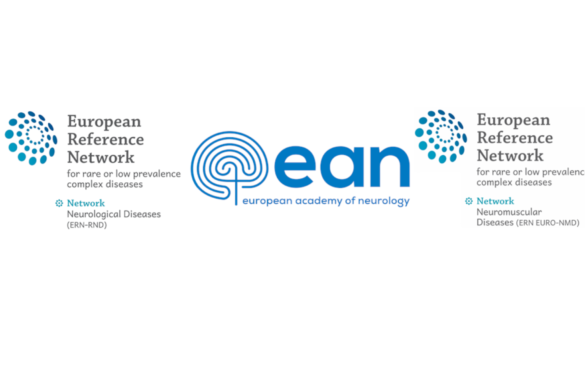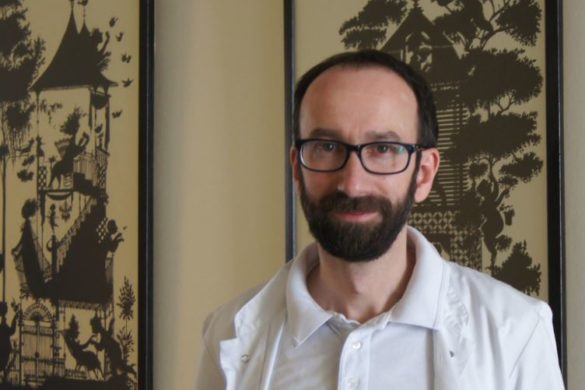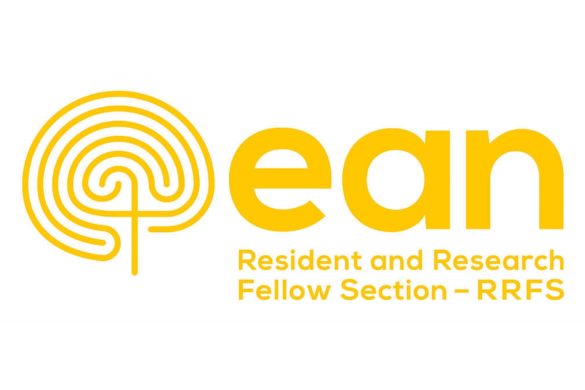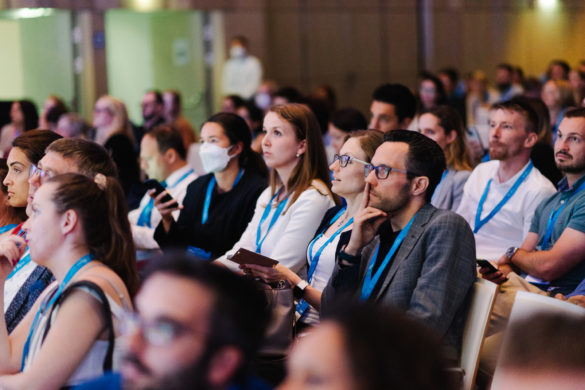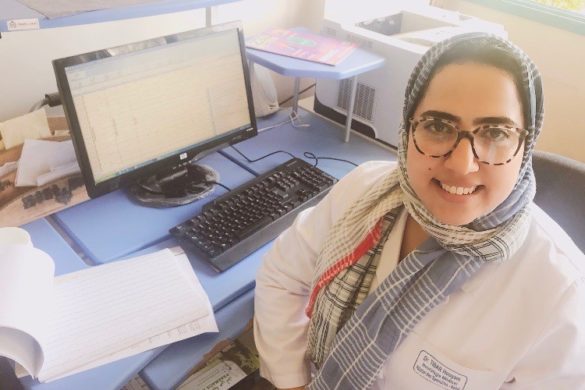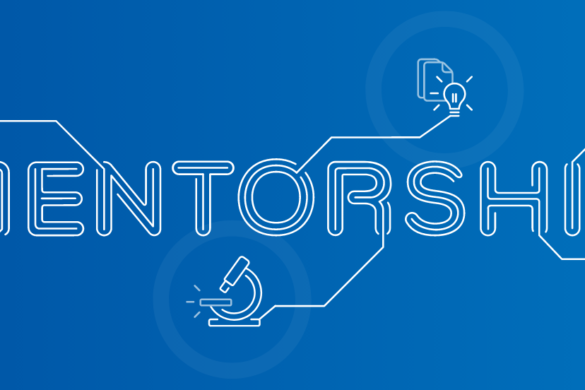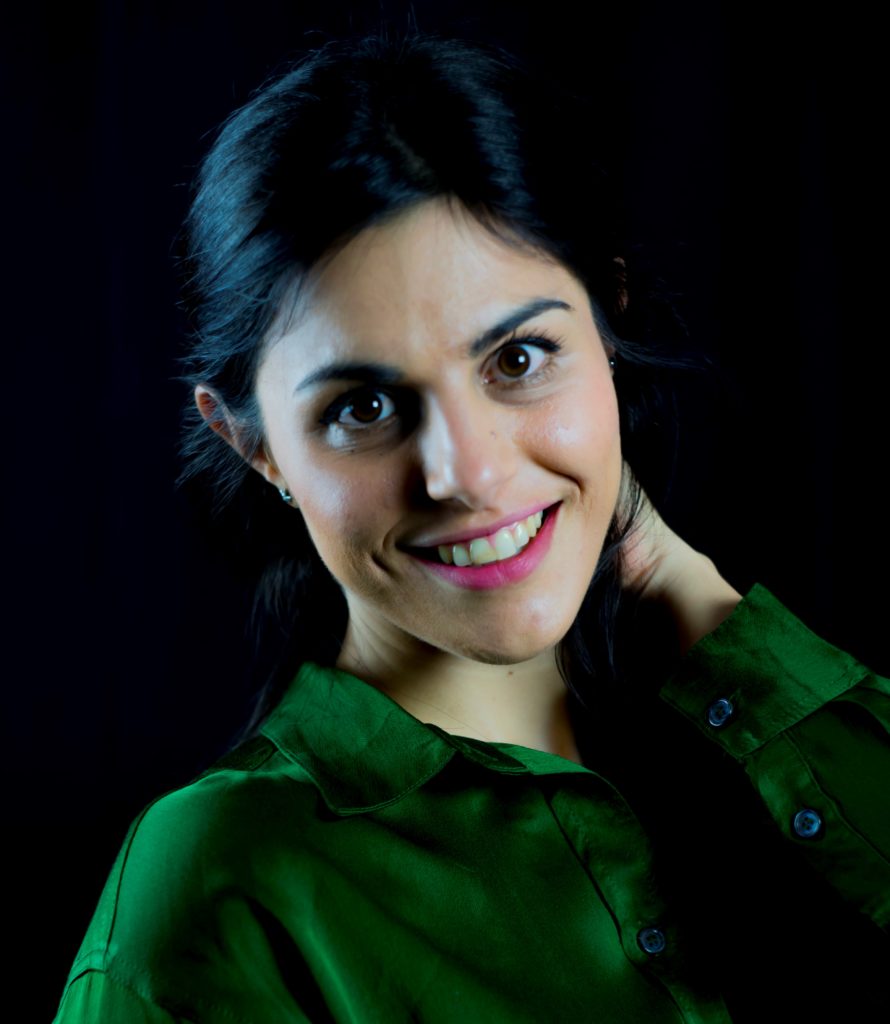
Simela Chatzikonstantinou, Thessaloniki, Greece
Term of Fellowship: 7 September -19 November 2021
Hosting department: Department of Epileptology and Clinical Neurophysiology, Hopital de la Timone, Marseille, France
Supervisor: Prof. Fabrice Bartolomei
…
My EAN Clinical Fellowship took place at the Department of Epileptology and Clinical Neurophysiology at La Timone hospital, in Marseille, under the supervision of Professor Fabrice Bartolomei.
The program lasted for 11 weeks, from September until December 2021. The fellowship was intended to cover all aspects of diagnosis and management of epileptic patients, with a focus on drug-resistant patients and pre-surgical evaluation. The Department of Epileptology of Aix Marseille University is a reference centre for refractory epileptic cases in France, with extensive experience in stereo-encephalography and a long history in performing and advancing resective surgery and neuromodulatory treatments in epilepsy.
Being part of the daily clinical and research work of such a prestigious academic centre could not but have strengthened my interest in epileptology. During my fellowship, I was involved in a wide spectrum of the available activities of the department:
- Epilepsy outpatient clinic, where I observed the work of Prof. Bartolomei while consulting patients. I had the opportunity to discuss a plethora of complex cases with him. I can say with confidence this was the most valuable educational period of my career in neurology so far. I was greatly inspired by his expertise, deep-rooted knowledge and ‘breakthrough’ scientific thinking.
- Reading and interpreting standard EEGs, which I was later able to discuss with Dr McGonigal or Dr Lagarde, gaining experience and competence to improve my EEG reading skills.
- Stereo-EEG explorations, language mapping, deep brain stimulations for the delineation of the epileptogenic network. I had the opportunity to observe Dr Trebouchon, Dr Lagarde and Dr Pizzo in performing SEEG stimulations and further discuss with them upon the analysis of the data.
- MEG (magnetoencephalography) studies, which I had the chance to learn some basic principles, by assisting Dr Bonini once a week. Non-invasive diagnostic modalities for epilepsy are much needed and MEG is a very promising tool in the field.
- Staff meetings and multidisciplinary work groups. Each week, I attended the meetings of epileptologists with a) neurosurgeons, b) neuro paediatricians and c) psychiatrists, where complex cases were extensively discussed, treatment strategies were constructed and revised upon, when necessary, and neurophysiological studies were analysed (videoEEG, stereoEEG, MEG, language mapping explorations) in addition to other diagnostic modalities (MRI, PET, fMRI, neuropsychological evaluations). These meetings particularly were very educational, providing me with the opportunity to encounter a great variety of clinical and electrophysiological data.
Finally, I was offered the opportunity to join an ongoing research project focused on developing a novel computational method for studying electroencephalographic changes in patients with transient epileptic amnesia. This was definitely of added value for my education in electroencephalography.
This fellowship was very fruitful thanks to the combination of my eagerness to learn and to the stimulating environment of my hosting department. I am grateful to the EAN Education Committee for the opportunity it provided to me and other colleagues. I firmly believe that through this Clinical Fellowship programme, the European Academy of Neurology contributes to the professional growth of neurologists of my generation, equally, between countries with variable levels of scientific and economic strength.
A specific word of gratitude goes to Prof. Bartolomei, my mentor during this internship, for his much-appreciated clinical and scientific guidance, and to the rest of his team (doctors, nurses, EEG technicians, researchers, administrative staff) for their flexibility in hosting me during their clinical work, their generous assistance and guidance, and for the pleasant working atmosphere. I am honored to have been taught the principles of “L’ecole de Marseille”, which I will carry and value throughout my professional route.
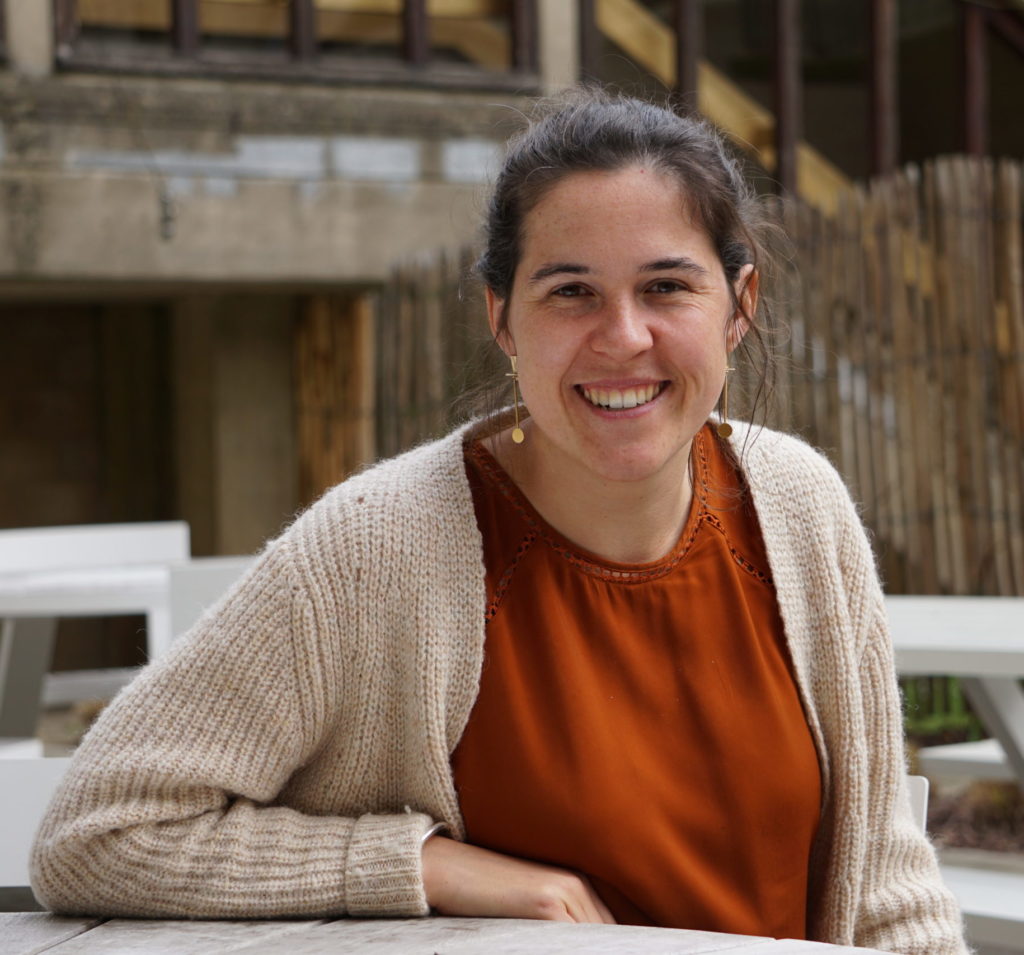
Ide Smets, Leuven, Belgium
Term of Fellowship: 1 July – 16 September 2021
Hosting department: Erasmus University Medical Center Rotterdam, the Netherlands
Supervisor: Dr Maarten J. Titulaer
…
Between July and September 2021, I undertook an EAN Clinical Fellowship in Neuroimmunology under the supervision of Dr Titulaer at the Erasmus University Medical Center, Rotterdam. The neurology service at Erasmus MC is the national reference centre in the Netherlands for auto-immune encephalitis and paraneoplastic syndromes. Moreover, I closely collaborated with the ErasMS group at Erasmus MC, which is the national reference centre in the Netherlands for neurosarcoid, anti-MOG associated disease and neuromyelitis optica spectrum disorder (NMOSD).
During my fellowship, I actively participated in coordinating many referrals, both clinically and in outpatient services, for autoimmune encephalitis, paraneoplastic disorders, but also all other types of neuroinflammatory and demyelinating disorders. Furthermore, the Erasmus MC autoimmune encephalitis unit counselled many neurologists by telephone about the diagnostic work-up of patients in non-academic hospitals. Difficult cases were discussed in the weekly multidisciplinary meetings with neurology, immunology, pulmonary medicine, neuroradiology, and if useful, paediatric neurology, ophthalmology and oncology.
At the end of my fellowship, I was able to expand my knowledge on the following domains:
- Most frequent manifestations of auto-immune encephalitis, paraneoplastic syndromes and, most importantly, their mimics
- Treatment and monitoring of autoimmune encephalitis and paraneoplastic syndromes
- Neuromyelitis optica spectrum disorders (NMOSD), anti-MOG-associated disease and, most importantly, their mimics
- Treatment and monitoring of NMOSD and anti-MOG associated disease
- Autoimmune demyelinating diseases that do not fulfil criteria for multiple sclerosis or (seronegative) neuromyelitis optica disorder
- Neurological manifestations of systemic autoimmune diseases (neurosarcoid, IgG4-related disease, Behçet disease, vasculitis, susac, clippers)
- Sensitivity and specificity of techniques (immunohistochemistry, cell-based assays, indirect immunofluorescence) to determine neuronal antibodies
- Indication and mode of action of the most frequent first and second-line immunosuppressive treatments (prednisone, azathioprine, mycophenolate mofetil, rituximab, cyclophosphamide)
Hence, the internship was the ideal follow-up to my clinical fellowship at Barts-MS in London, and allowed me to gain in-depth knowledge about the entire neuro-immunology field. These skills will be exceptionally useful during my further career as an MS expert, and I would like to thank the EAN for their trust and financial support.
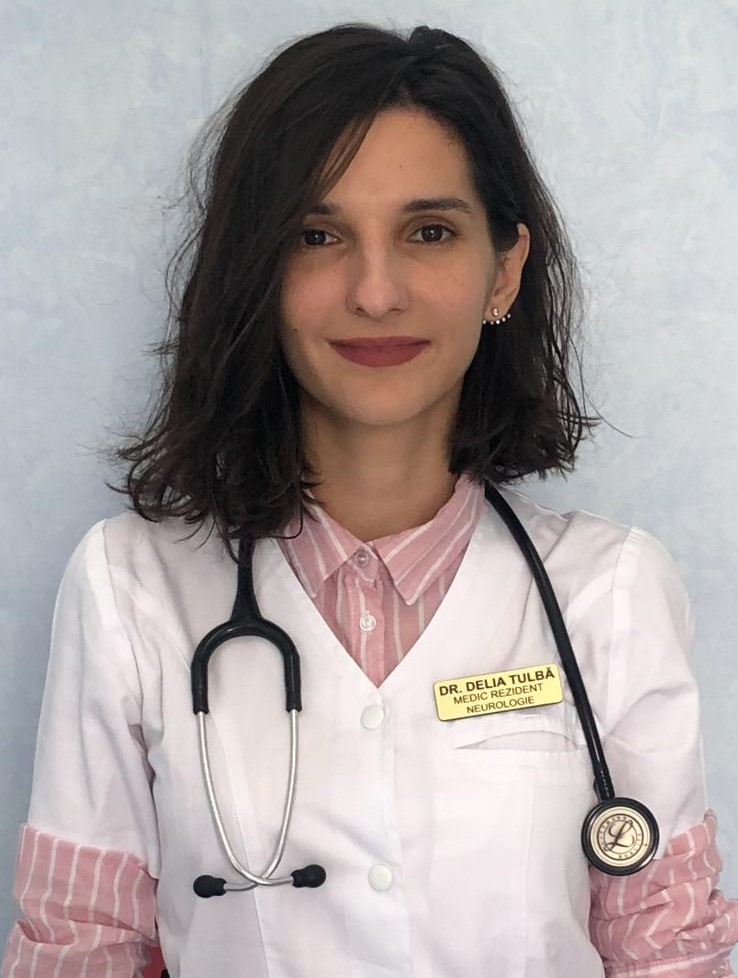
Delia-Cristina Tulba, Bucharest, Romania
Term of Fellowship: 13 September – 28 November 2021
Hosting department: Parkinson´s Disease and Movement Disorders Unit, Hospital Clinic de Barcelona, Spain
Supervisor: Dr Francesc Valldeoriola, Dr Yaroslau Compta
…
I am truly grateful for having spent my EAN Clinical Fellowship at the Parkinson’s Disease and Movement Disorders Unit of the Hospital Clinic de Barcelona, Spain. Overall, it was a wonderful and unique experience for me. During a total stay of 11 weeks, I learned valuable lessons that shaped my medical thinking and helped me further my career.
My daily schedule at the Hospital Clinic de Barcelona included both inpatient and outpatient care. I was offered constant professional guidance – all their doctors are international movement disorders experts who are happy to share their knowledge and advice. They encouraged me to interact with the patients and actively participate in the diagnosis and decision-making regarding treatment. The main nurse is also a true professional, keen to assist whenever asked or needed – she taught me practical tips related to the handling of device-aided therapies for advanced Parkinson’s disease, especially infusion therapies (jejunal levodopa infusion and subcutaneous apomorphine infusion); she also shared a great deal of advice regarding the non-pharmacological care of patients with movement disorders.
I had the chance to consult many patients with a wide range of movement disorders, both common and rare: Parkinson’s disease (both sporadic and genetic, especially with mutations in LRRK2), atypical parkinsonisms, dystonia, hereditary ataxias, choreas and spastic paraplegia, etc. Since the Hospital Clinic de Barcelona is a centre of expertise for deep brain stimulation, I was taught to attend to these patients (to perform a preoperative evaluation, to adjust the parameters of stimulation, etc.). It was my first chance to attend botulin toxin injections guided by electromyography and/or ultrasonography. I also enjoyed the weekly scientific sessions with clinical case presentations or various lectures relevant to the movement disorders field.
I was deeply impressed by the healthcare system in Barcelona and the opportunities it provides for patients with movement disorders (diagnostic tools such as MIBG scan or DaTscan, genetic testing and counselling, physical activity and psychological counselling programmes facilitated by the patient associations). Moreover, the doctors and medical staff are always concerned with the functionality of patients rather than simply treating neurological signs such as bradykinesia or rigidity. They have a great team there in which each member is important and contributes to the welfare of the patients.
Apart from the activity within the hospital, Barcelona also offers tremendous opportunities for those who are passionate about arts, history, or nature. People are gentle and willing to help and share their thoughts and experience.
From a financial point of view, Barcelona is rather expensive. For instance, renting a studio in a good location costs around €1,000 per month. However, public transport is not very expensive (especially if you buy a monthly ticket) and covers the whole city. Another good thing is that the Hospital Clinic de Barcelona has a cafeteria where you can buy a delicious lunch for €6.30.
I strongly believe that this experience benefitted me personally both in improving my clinical skills and better understanding the fundamentals of movement disorders and research. I think that having had first-hand experience of the excellent standards in Spanish medicine and access to new modes of thinking and problem-solving improved my own practice. Moreover, I intend to bring those standards of excellence and practice back home, to Romania, to the benefit of my patients and colleagues. I truly think that I became a better doctor after this experience.
Finally, I encourage all those who are passionate about movement disorders to apply for this fellowship at the Hospital Clinic de Barcelona. However, my advice would be to be fluent in Castilian Spanish (it would be amazing to also know Catalan) and to get involved as much as possible in everyday hospital activities since this is the best way to acquire knowledge.




